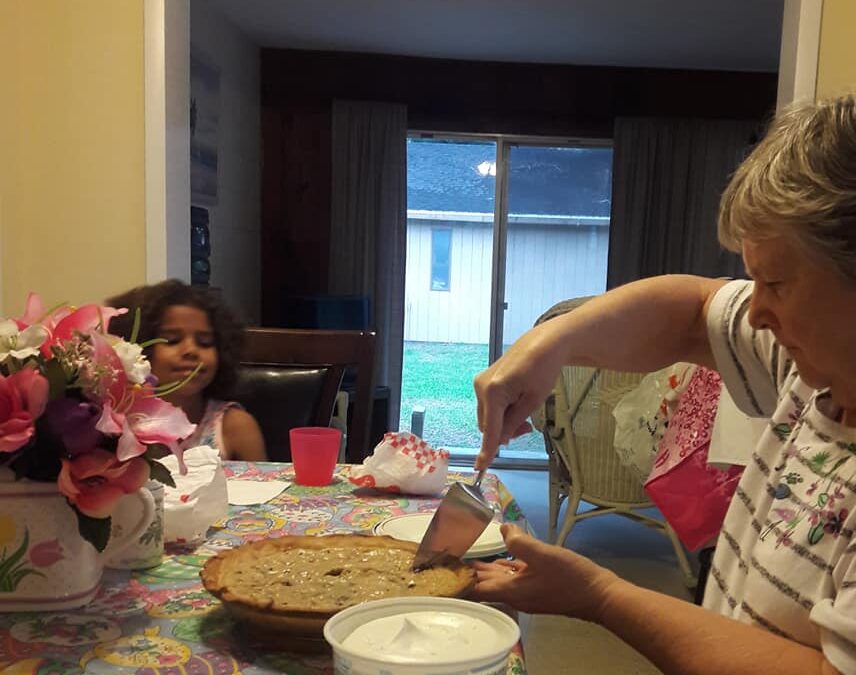When it comes to our bodies, the majority of us are inclined to look on the bright side. Even if there’s a niggling feeling in the back of our heads, most of us will discard the idea that something could be seriously wrong in place of assuming that we aren’t getting enough iron, or perhaps we need more sleep. Unfortunately, while this is most often the case, there are instances where a bodily complaint or unexplained pain has a more sinister cause, and receiving that diagnosis can come as a real and shocking blow.
After all, like most unimaginable things in life, many of us believe that serious illness is something that happens to other people. As such, it can feel surreal and even impossible when that bad diagnosis comes knocking. Feelings of disbelief, shock, and even depression aren’t unusual in this situation, and having a support network is the best and perhaps the only way to deal with those emotions and meet your diagnosis head-on.
In this way, you could say that just as a village is famously fundamental for raising a family, it also takes a village to help you to process and develop coping strategies in the face of any serious diagnosis. This is so important, in fact, that many doctors will ask about your support network prior to major treatments. The question is, who exactly do you need on your team to best cope with bad health news when it comes?
# 1 – Your loved ones
Nobody is as crucial for helping you through life’s trials as your loved ones are. After all, these are the people who know you the best, and who are the most emotionally invested in providing you with the support, comfort, and care that you need. During health-based challenges, in particular, being able to lean on your loved ones can be a huge help in reminding you that you aren’t alone. Considering how beneficial talking can be for the sake of healing, or simply helping to air your most complex emotions about what’s happening, having plenty of loved ones around even brings the benefit of potentially shorter healing periods, and a generally better mental outlook, which is also going to help your body in the long run. From your partner to your family members and closest friends, it’s therefore crucial that you share the news of your diagnosis as soon as you feel comfortable, and that you let those people help you in whatever ways you need during this period.

# 2 – Doctors in the know
It should go without saying that you need a team of doctors on your side when your health takes a turn for the worst. When you’re dealing with a serious condition, however, it’s especially essential that you receive the support of a knowledgeable team of doctors who can provide you with the best care possible. After all, while your GP is likely well-versed in the basics of most conditions, they don’t have dedicated experience, and may never have even seen a case like yours before. It’s therefore imperative to either ask for a referral or take your own time finding a specialist doctor who can approach your condition with experience and understanding. This is especially crucial for conditions like multiple myeloma which require sometimes complex treatment plans but is equally important for something like a heart condition, or a mental complaint. In each instance, being able to rely on the expertise and recommendations of those around you will take a weight off your shoulders, and ensure that you’re always working with the best tried and tested treatment plans.
# 3 – Other people in your position
While loved ones can offer emotional support, and experts are best poised to recommend your treatment plans, the reality is that serious illness can still feel incredibly isolating if you don’t also connect with other people in a similar position. After all, while other people around you will undeniably sympathize with what’s happening, and may even experience some pain of their own in light of your suffering, they can’t truly understand how you’re feeling physically or mentally. That can leave you feeling frustrated and unable to truly express yourself, an issue that you can only overcome by joining forums, support groups, and similar with your condition in mind. While this can be difficult to begin with, especially when you’re coming to terms with your diagnosis, you’ll eventually find that having these understanding people to turn to can really help with the emotional toll of illness, and will always help you to feel heard, understood, and reassured that what you’re going through is entirely normal.
# 4 – People who can help
Regardless of the illness that you’re dealing with, the chances are that you’re going to need help as you deal with both the physical and emotional implications of what’s happening. This is especially true if you have a family to take care of at the same time, with even chores like cooking and cleaning typically taking a back seat when health complaints like these come to the fore. Of course, to some extent, the people we’ve spoken about so far can help in this way with your loved ones, in particular, inevitably on hand to take care of the kids or cook for you so you can rest easy that everyone’s still eating a balanced diet and getting what they need. Equally, having people to clean your house, whether that’s loved ones or professionals, will always help to ease your burden a little. Then, you’ll be far better able to dedicate all of your energy and thoughts to getting better, and dealing with whatever’s to come.
A difficult diagnosis can be devastating, but it’ll be made far harder if you attempt to manage this burden on your own. Instead, you need to build yourself the best possible village for recovery, and you’ll want to make sure that these are the kinds of people you bring on board.
















